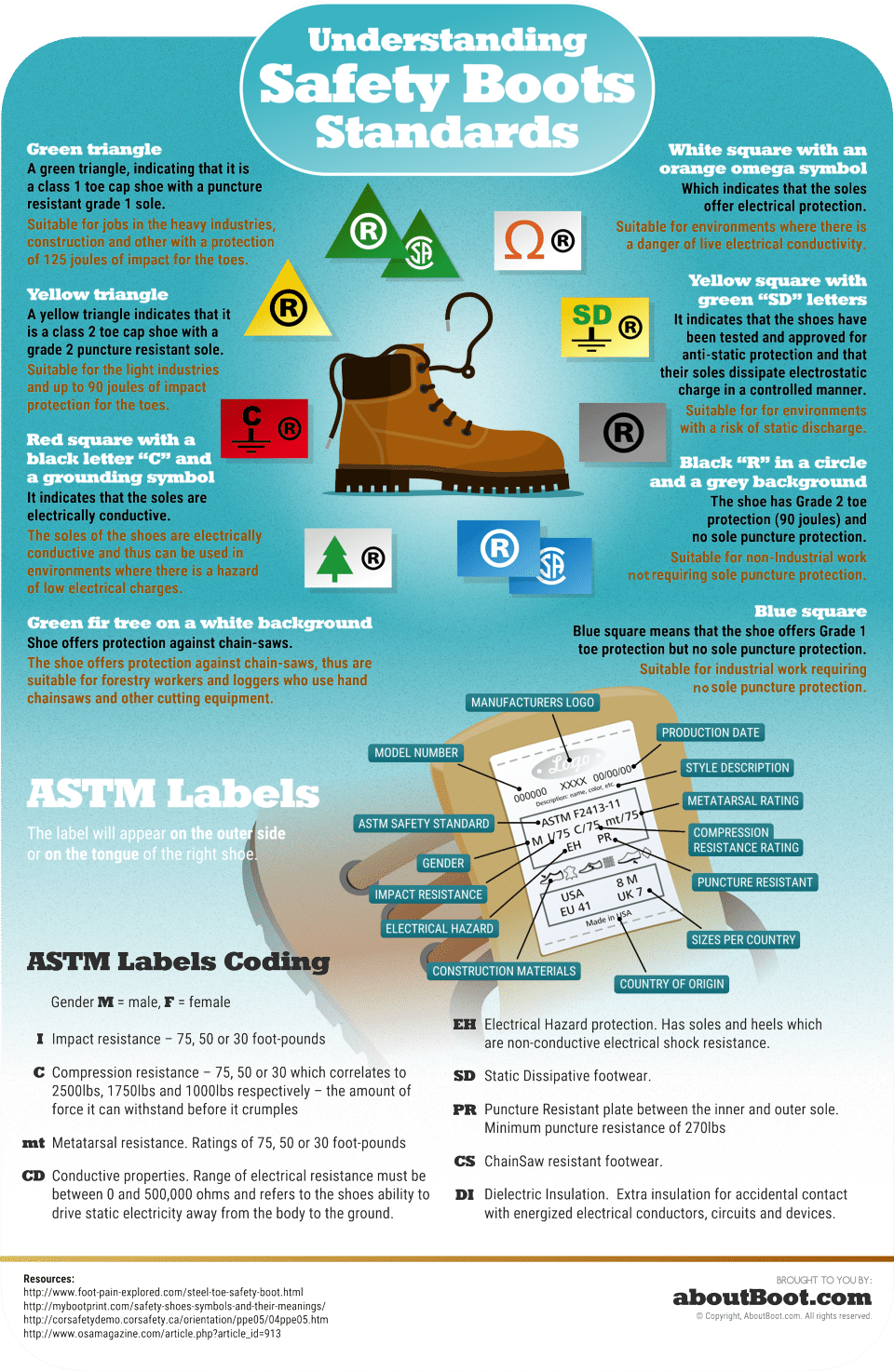Everything You Should Know About Safety Boots Standards | Infographic
Before you purchase a new pair of safety boots, it’s very important that you check the safety markings and signs on the boots. This is to make sure that the pair will be suitable in the environment where you’re going to use it.
For example, if you’re going to use the boots in your workplace wherein wayward electrical charges are always a risk, then you should choose a pair that contains the omega safety sign.This sign indicates that the soles of the boots are impervious to electrical flow.
Depending on work and industry safety requirement varies, so one should know about the type of risk involved in the work and choose the safety boots considering that. In this infograph we explained those safety standards so that you can choose the best work boots for you by understanding the standards ASTM provided.
Below is an overview of other safety boots standards and their corresponding meanings.
Share this Image On Your Site
Green triangle
This indicates that the shoe has a class 1 toe cap and a grade 1 sole that’s very resistant to punctures. With that said, boots with this safety standard are great for people who hold jobs in construction and other heavy industries. The sole is strong enough to withstand prolonged impact and the tough shoe cap protects your toes in the instances that something heavy falls on your feet.
Yellow triangle
This serves a very similar function to the green triangle. The only difference is that the yellow triangle indicates a class 2 toe cap and a grade 2 puncture resistant sole. This means that the boots are a little bit weaker compared to boots marked with a green triangle. With that said, the boots are more susceptible to wear and tear. They are only suitable for use in light industries wherein the boots aren’t subjected to too much impact.
White square with an orange omega symbol
This sign indicates that the soles of the boots offer electrical protection. This means that they are insulated and that electricity can’t pass through them to get into your body. That said, if you work in an environment where you have to often deal with electricity, a pair of boots with this marking would be suitable for you.
Yellow square with greed SD letters
This indicates that the shoes have been tested and approved when it comes to anti-static protection. Additionally, the soles of the boots have the ability to dissipate electrostatic charges in a controlled setup. If you work in an area that’s susceptible to static discharges, a pair of boots with this marking would be beneficial to you.
Red square with a black letter C and a grounding symbol
The letter stands for electrical conductivity. This basically means that you are advised to not wear the boots in environments where there’s a huge risk for electrical charges. However, you can use the boots in places wherein there’s very little electrical hazards.
Green fir tree on a white background
Basically, what this sign means is that the boots can protect your toes and feet against sharp-bladed appliances like chainsaws. With that said, boots with this sign are great for people who work in forested areas.
Final Thoughts
The next time you go shopping for a new pair of boots, you should see to it that you thoroughly check the signs and markings on the soles and insides of the boots.


Thank you so much for all the information regarding industrial boots and how to find ones that meet safety standards. My wife and I had no idea about all of the triangles that designate that they are safe. I do not think a lot of people know about this and go out and simply buy boots that are visually attractive; however, may not be the best boots to work in. Thanks for the advice!